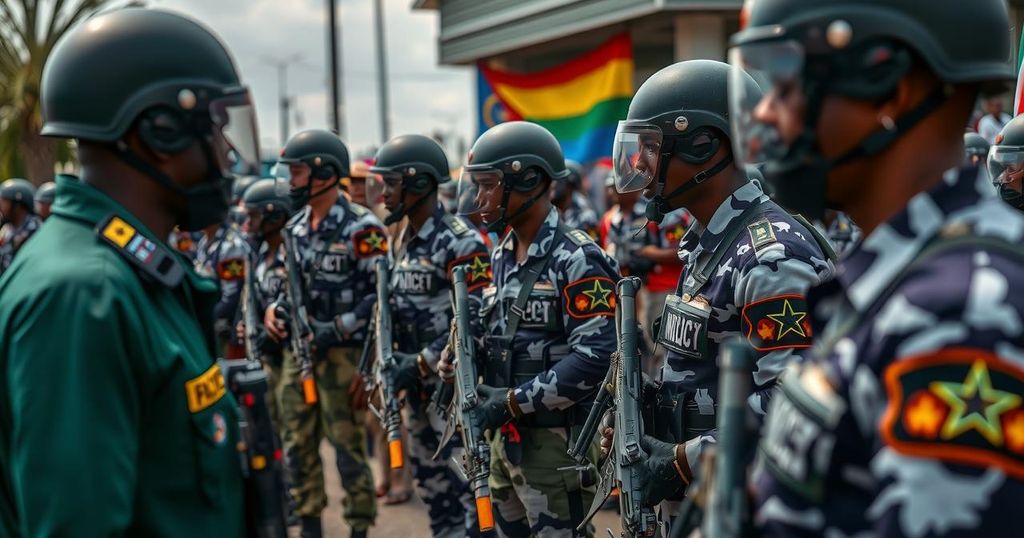Politics
AFRICA, ANTONIO, ANTONIO JUAQIM, BBC, COMMISSION, DANIEL CHAPO, DEMOCRACY, ELECTIONS, FR, FRELIMO, MANUEL SAMUEL, MAPUTO, MON, MONDLANE, MOZAMBIQUE, OPPOSITION, PROTESTS, RENAMO, SAMUEL, SAO FRANCISCO XAVIER, SÃO FRANCISCO XAVIER CEMETERY, VE, VENÂNCIO MONDLANE, VIOLENCE
Isaac Bennett
0 Comments
Mozambique Crisis: Police Violence and Children Victimized in Protests
Mozambique’s recent elections have led to violent protests, notably the killing of a 16-year-old boy, Antonio Juaqim, during demonstrations against alleged electoral fraud. The police have been accused of excessive force, resulting in numerous fatalities, including children. As opposition leader Venâncio Mondlane rallying support against the ruling Frelimo party, nightly protests persist, expressing public dissent and calling for justice amidst a troubled political landscape.
Mozambique has plunged into a significant crisis following the recent presidential election, with police being accused of violently suppressing opposition protests. The tragic incident that has drawn international attention involved the shooting of Antonio Juaqim, a 16-year-old boy, during a protest against the election results, leading to public outrage and further protests across the capital, Maputo. Despite the official declaration that the ruling Frelimo party received an overwhelming majority of votes, opposition figures have decried the election process as rigged. This political turmoil has resulted in the deaths of numerous young individuals, igniting fears around governmental response and human rights violations, as citizens repeatedly voice their dissent through nightly pot-banging protests.
The political landscape in Mozambique, characterized by decades of rule by the Frelimo party since independence in 1975, has been increasingly contentious. The recent elections held in October were marred by accusations of fraud and lack of transparency, leading to widespread distrust among citizens. The aftermath has seen an alarming increase in violence and fatalities, particularly of young protestors, as opposition leaders mobilize their supporters against what they perceive as an unjust electoral system. This has led to a generational divide, with the youth demanding accountability and economic opportunities, challenging the traditional political narratives established by older parties.
The unfolding crisis in Mozambique highlights deep-rooted issues of political instability, human rights abuses, and public dissatisfaction with the current regime. The tragic deaths of children during protests have sparked outrage both domestically and internationally, calling into question the legitimacy of the electoral process and the government’s response to dissent. As the situation develops, the need for a peaceful resolution and respect for human rights has become increasingly imperative. The cries for justice and accountability from the youth reflect a pivotal moment in Mozambique’s political history, demanding urgent attention from both national and international stakeholders.
Original Source: www.bbc.com




Post Comment